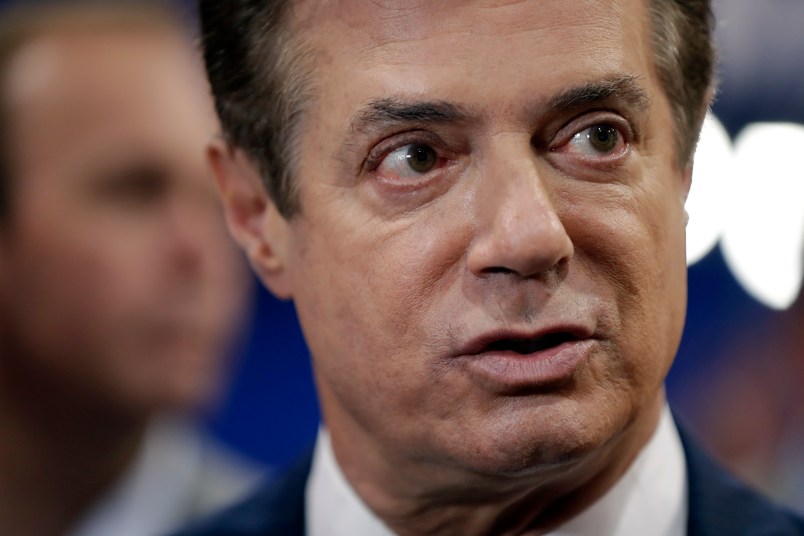It is hard to know precisely what to make of tonight’s revelation that Paul Manafort was the subject of a FISA warrant before and after the 2016 election. Just when the FISA warrant was granted is not clear from the report. But the precise date would tell us a lot.
Let’s walk through this.
The article actually says there were two FISA warrants. One was prior to the 2016 election and apparently unrelated to it. That one focused on Manafort’s work for the then Russia-aligned government of Ukraine. It lapsed some time in early 2016. The election warrant began in 2016 and extended into the early months of 2017. The report says it grew out of, rather than triggering, the counter-intelligence probe into ties between Trump campaign officials/associates and Russian intelligence operatives. That would seem to place it no earlier than the summer of 2016. Indeed, the article states explicitly that there was no active warrant when Donald Trump Jr had that meeting in Trump Tower with the Russia lawyer in early June 2016.
So that’s a firm date the FISA warrant had to come after.
A key detail to know is whether the warrant was issued perhaps later in June of 2016 or much later in the campaign after Manafort was dismissed in August. By my read the article is not clear on whether the warrant was issued while Manafort was still working on the campaign. The reporters say they weren’t able to learn the exact date.
When I saw this report what jumped out to me was this. Candidate Trump received his first intelligence briefing on August 17th, 2016. Joining him were Mike Flynn and Chris Christie. Two days later on August 19th, Manafort resigned from the campaign. This means that at the time of the first briefing, it’s possible that two members of the Trump campaign were being actively surveilled by the FBI over contacts with Russian government officials. That’s Manafort, the campaign chairman and Carter Page, a fairly peripheral foreign policy advisor.
Michael Flynn would later become a central figure in the investigation. But the probes into Flynn appear to have begun soon after the November election – both because of an op ed he wrote attacking a Turkish dissident resident in the US and contacts with the Russian Ambassador.
Meanwhile Trump himself had been actively praising Russia and even seemingly calling on Russia to hack his opponent’s emails. One can only imagine how this set of facts played into intelligence officials’ thinking when they prepared to give Trump his first briefing on the August 17th.
Let’s also remember that letter former Senate Minority Leader Harry Reid wrote to James Comey after he appeared to reopen the Clinton emails investigation at the end of October. Quoting Reid: “In my communications with you and other top officials in the national security community, it has become clear that you possess explosive information about close ties and coordination between Donald Trump, his top advisors, and the Russian government – a foreign interest openly hostile to the United States, which Trump praises at every opportunity. I wrote to you months ago calling for this information to be released to the public…and yet, you continue to resist calls to inform the public of this critical information.”
The CNN report says the wiretaps appeared to show or at least suggested that Manafort had requested for Russian government assistance during the campaign, though at least some of their sources said the evidence was ambiguous. Reid referred to “top advisors” of Trump. It’s difficult to imagine he wasn’t referencing briefings about the Manafort wiretaps.
[ed.note: In the original version of this post I wrote that Michael Flynn was also under investigation at the time of that first intelligence briefing. One of my colleagues points out that this does not appear to be so. Flynn moved center stage just after the election.]








